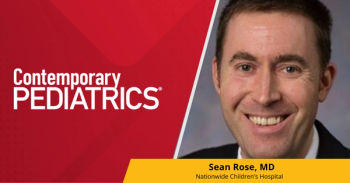
Half of children with reported penicillin allergy symptoms are not truly allergic
Parents of children who visit a pediatric emergency department often report that their child has an allergy to penicillin, which can lead to treatment with a less than optimal antibiotic.
Parents of children who visit a pediatric emergency department often report that their child has an allergy to penicillin, which can lead to treatment with a less than optimal antibiotic. Yet a recent investigation in children with a history of parent-reported penicillin allergy found that about half of them could be categorized as at low-risk for true penicillin allergy on the basis of reported allergic symptoms at the time medication allergy was diagnosed. Of these low-risk children who completed the study, none had a true allergy to penicillin.
Parents of about 600 children aged from 4 to 18 years with a history of reported allergy to penicillin first completed a penicillin allergy questionnaire that addressed the child’s age when allergy was diagnosed, the antibiotic the child was taking at that time and for what indication, and symptoms of allergic reaction. Of these children, about half had reactions to penicillin that the authors judged were not likely to represent a severe immunoglobulin E-mediated or T-cell-driven process. These low-risk symptoms most often were rash (in 97%) and itching (in 63%); other symptoms were diarrhea, vomiting, runny nose, nausea, cough, or a family history of allergy. About 27% of children had at least 1 high-risk symptom of allergy to penicillin.
In a second phase of the study, children with a history of only low-risk symptoms were eligible for penicillin allergy testing, which was administered to 100 children, using a standard 3-tier testing process: a percutaneous skin test followed by the more sensitive intracutaneous testing, and finally an oral drug challenge with amoxicillin, either a 500-mg tablet or 520 mg of liquid. All 100 low-risk children tested had negative results for penicillin allergy after oral challenge and had their labeled penicillin allergy removed from their medical record. Investigators concluded that low-risk symptoms of penicillin allergy probably do not represent true allergy (
Thoughts from Dr. Burke
How often do you stop and rethink a treatment plan because of a past medical history of a drug allergy? And when you do that, how often do you wonder if that allergy was real or the result of misinterpretation of a viral exanthem or other nonspecific finding in your patient’s past? These authors hypothesized that a history of medication allergy in a child is often false, and their study confirms this hypothesis for children judged to be low risk based on the specifics of their “allergy.” Should the authors follow up by publishing a tool incorporating their findings, you may be able to quickly sort patients into those with true and false histories of medication allergy.
Newsletter
Access practical, evidence-based guidance to support better care for our youngest patients. Join our email list for the latest clinical updates.






